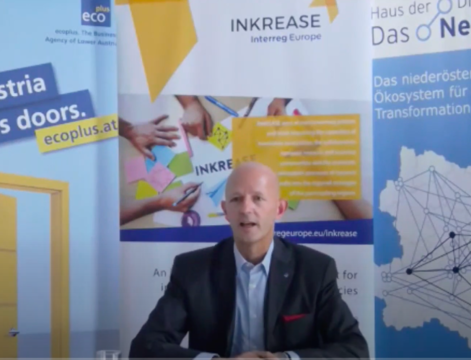
INKREASE Final Conference
The Final Conference of the INKREASE project was held online on 17 September 2020, here is what you missed.
INKREASE - Innovation and Knowledge for REgional Actions and Systems - aims at improving innovation delivery capacity of participating regions. The project's main goal is to mainstream, into the different regional strategies of partners, policies and tools to increase the capacities of the various innovation ecosystems, reinforce the collaboration between research and business communities and exploit the economic valorization processes of research results. INKREASE learning process tackles aspects related to:
INKREASE has a clear focus on the challenges emerging from RIS3 and the identification and development of new value chains to support research-enterprise cooperation. Good practices on governance models, industry-science relations management schemes, business clustering and networking experiences are taken as inspiration for the regional Action Plans.
UPDATE : The project entered its "Phase 2" in April 2019
After 3 years of sharing experiences, good practices, policies and visits of European Innovation Ecosystems. Partners have presented their Regional Action Plans during the Mid-Term Conference in Bologna in March 2019. Those plans have been inspired by partners good practices and designed to fit regional needs and ambitions. They will be implemented the next 2 years, until the end of the project.
€1,464,486.00
Research and innovation
The project idea took shape from the need of partner regions to improve their policy instruments addressed to increase R&I investment and the development of programmes and projects in line with their RIS3, connecting research and business actors for R&I development. Thanks to interregional exchange, the INKREASE project will influence policy instruments to produce several effects based on the RIS3 implementation:
The policy instrument is the ERDF ROP Action 1.2.2 ‘Support to the realization of R&D projects on relevant topics and the application of technological solutions necessary to accomplish the S3 strategy’, within Priority Axis 1 - Strategic Objective 1.2. ‘Strengthening of regional and national innovative system’. The focus is on R&D projects implementation in selected thematic areas to build a stronger link between research laboratories and companies for the promotion of research and technological innovation to strengthen the regional productive system. The instrument addresses research laboratories which develop, in collaboration with companies, strategic large scale research projects aiming at: develop and testing KETs, reach technological results addressing regional production chains needs, create prototypes and technology demonstrators, industrialise research results by involved companies, disseminate technological solution to a large number of firms. The applied research labs, part of the regional High Technology Network, have to strengthen links and synergies locally and at the international level. They have to exploit the existing potential to develop new technologies and contribute to bring to the market research results. A stronger connection with the productive system, a better internal organisation and a possible enlargement to new actors and partners are needed. The capitalisation on the existing assets towards S3 priorities is the main expected improvement.
The objective is to “Foster regional R+D+i enhancing collaboration between different actors - Enterprise-University-Technology Centers-TCs, creating a favorable environment for business investment in R&D”. The existing R+D+i system is in consolidation phase and needs improvement according to the investment priority (IP) “Promotion of investment by businesses in innovation and research, development of linkages and synergies between businesses, research and development centers and higher education sector” and the following specific objectives:
1 Impulse and promotion of R&I led companies, supporting the creation and consolidation of innovative companies and support to innovative public procurement,
2 Knowledge transfer and cooperation between enterprises and research centers,
3 Promotion and production of knowledge frontiers of emerging technologies and KET focused on knowledge society challenges.
This IP will lead actions contributing to boost both public and business sector investment in R&D and improve the ability of TCs in Navarra in the development of research and technological development, market oriented projects. The establishment of relations and cooperation between companies and TCs, in order to transfer technological knowledge to the business sector will be promoted, focusing on sectors identified as key in the RIS3. Additional actions to strengthen the relationship between TCs, universities and companies are needed in the current plans of the policy instrument.
The measure supports new and existing networks in order to close gaps in the innovation system, decrease competitive disadvantages of SMEs, organize collaboration along the value chain and speed up diffusion of new technologies and collaborative competence development at the Technopols. It is implemented by Intermediary Bodies based on RIS3 in coherence with the national RTI strategy and in Lower Austria through the region’s Technopol Program.
Technopols are centers of technology and business which are established in direct proximity to recognized educational and research facilities. The Lower Austria Technopol program combines education, research and business. The Technopol Program Lower Austria 2015-2020 provides support for the Technopol management. The implementing body of the program is the Lower Austrian Business Agency ecoplus, a regional development agency owned by the Regional Government. Based on comprehensive potential analyses of the R&D in Lower Austria and the decision of the regional Government to support this initiative, ecoplus manages the Program at the 4 Technopols focusing on the following topics : health technology, natural resources; bio-based technology, medical and materials technology, bioenergy, agricultural and food technology.
Despite efforts to improve innovative, technological development in the past years, the program needs to be improved to development of new value chains, develop new instruments and provide more international visibility.
The specific objective of the policy instrument is to increase the number of innovative SMEs by supporting cooperation for innovation between companies and knowledge institutions.
The priorities are among others to promote private investments in Research and Development, develop connections and synergies between companies, research and development institutions, expecially to promote investments in development of products, services, technology transfers, cooperation between networks and clusters, and to support technological and applied research and advanced manufacturing.
Compared to other countries, there are few innovative companies and productivity growth in Danish enterprises is relatively low. There is at continuing need to support innovation cooperation through smart specialization.
The Danish innovation strategy will ensure that more of Denmark's strengths in knowledge and business turns into new growth and job creation. The strategy supports efforts to strengthen growth conditions provided for in the private sector, which will focus on products and solutions that solve societal challenges. By establishing a framework program which includes support functions for the individual company or the individual innovation cooperation we can increase the number of innovative SMEs. But the efforts can be improved and there is a need to strengthen the cooperation between companies and knowledge institutions.
The programme (source: ERDF, ESF, IKF; a total of 9,004.2 M EUR over 7 years) aims to stimulate the economies of the less developed regions in Hungary. The specific Measure 2.2. of the Program "Improving R&D capacities within technology intensive businesses" aims to promote business investment in R&I, developing links and synergies between enterprises, research and development centres and the higher education sector. The measure aims to trigger actions that reinforce and expand regional innovation capacity based on the potential of involving, educating and empowering local business, citizens and public administration to become partners in development of joint R&D projects. The measure goal is to improve industry-science relations, technology transfer and the valorisation of research results produced in the territories, strengthening local and interregional collaboration among R&D and Innovation process actors. Further aims are the improvement of existing relations among actors and the creation of new ways (programmes and tools) to exploit the innovation potential while answering to companies needs and business development opportunities.
The Joint studies, R&D and innovation initiatives policy instrument is a joint funding instrument by two ministries: Ministry of Science and Education and Ministry of Economy. It is financed by ESIF. It aims to initiate high-value added projects with the direct aim to meet marked needs. Applicants will be consortiums from research organizations and private entities. The projects should result in R&D based new technology products and prototypes. The use of Joint studies, R&D and innovation initiatives is a new practice for Lithuanian R&I system, therefore its performance will be monitored and it will be subject for improvement. The scope of improvement ranges from the collaborative actions by two ministries, better project proposal selection and sustainability of the selected projects. International experience will be valuable for avoiding common mistakes and applying relevant best practice from Project partners’ experience.
Brittany’s investment for Growth and Jobs Programme ROP 2014-2020 aims to strengthen the coherence between investment and the structural reforms priorities and focuses on the need to promote growth and employment in order to achieve Europe 2020 strategy objectives.
The overall objective of Priority Axis 2 “‘Improve Brittany's economic performance through the support of research, innovation and enterprises” is to strengthen the competitiveness and the economic performance of Bretagne. Priority axis 2 has three main objectives:
2.1 Reinforce the competitiveness of Breton R&D in the European Research Area (ERA);
2.2 Improve the innovation capacity of Breton SMEs;
2.3 Increase the production potential of Breton SMEs.
Targeted actions clearly identify the governance of the RIS3 (Action 2.2.4) as a key element to ameliorate the technology transfer between research centres and companies (Action 2.2.1), the support to emergence of both innovative industrial projects (2.2.2) and collaborative industrial projects (2.2.3). More specifically, the ROP calls for an optimization of already existing monitoring tools (studies, analysis, databases ...) and the improvement of evaluation and selection tools for R&D projects to be financed with regional funds. Overall, the ROP does not take into account the European dimension of the RIS3, which would allow to increase the internationalisation of Breton SMEs and to take a better advantage of other tools such as Enterprise Europe Network.

The Final Conference of the INKREASE project was held online on 17 September 2020, here is what you missed.

This dissemination event (17/09/2020) will give the floor to the regions and share their experiences related to the online open innovation platform.
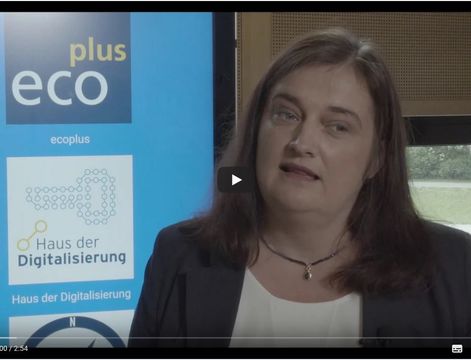
The Lower Austria Business Agency published a short movie about it actions during time of Corona-Covid19-Situation in Austria.

The House of Digitalization is the flagship project of Lower Austria, partener of the INKREASE Interreg Project.
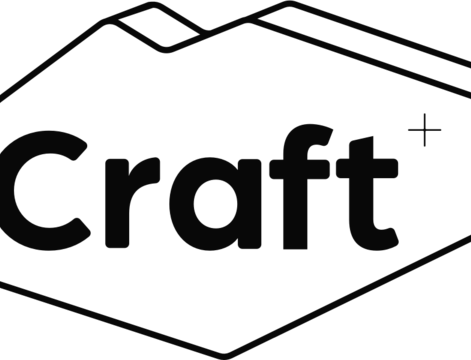
Craft Mapping Tool European launch on Cybersecurity / AgriFood - Breton network for European projects
Lithuania started to implement its "EXPERIMENT" Project
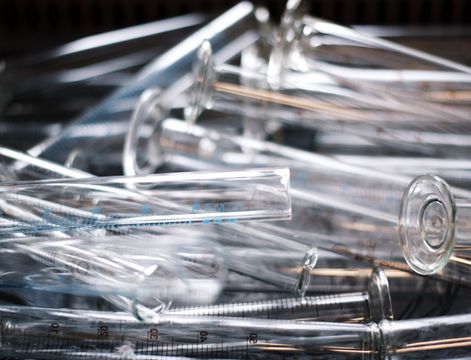
A Scientific Infrastructures and Equipment Sharing System (SIESS) has been designed and will be implemented

The "House of Digitalization" is the lighthouse of the Lower Austrian digitalization strategy.
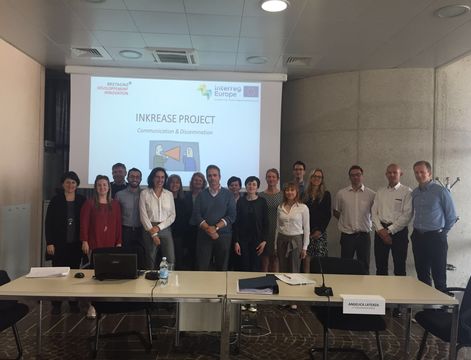
Highlight on Inkrease project's Good Practices
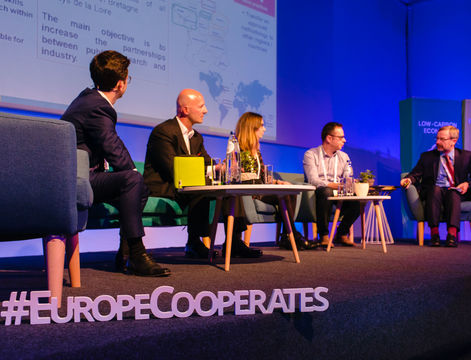
BDI presented CRAFT database development, improved by interregional cooperation